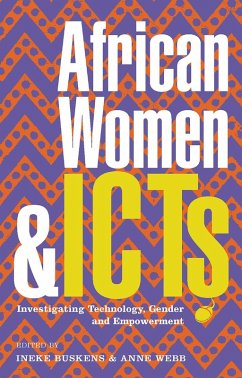The revolution in information and communication technologies (ICTs) has vast implications for the developing world, but what tangible benefits has it bought, when issues of social inclusion and exclusion, particularly in the developing world, remain at large? In addition, the gender digital divide is growing in the developing world, particularly in Africa - so what does ICT mean to African women?
African Women and ICTs explores the ways in which women in Africa utilize ICTs to facilitate their empowerment; whether through the mobile village phone business, through internet use, or through new career and ICT employment opportunities. Based on the outcome of a extensive research project, this timely books features chapters based on original primary field research undertaken by academics and activists who have investigated situations within their own communities and countries. The discussion includes such issues as the notion of ICTs for empowerment and as agents of change, ICTs in the fight against gender-based violence, and how ICTs could be used to re-conceptualize public and private spaces.
ICT policy is currently being made and implemented all over Africa, but the authors argue that this is happening mostly in the absence of clear knowledge about the ways gender inequality and ICTs are impacting each other and that by becoming alert to a gender dimension in ICT developments at an early stage of the information revolution, we may be able to prevent greater scaled undesirable effects in the future.
African Women and ICTs explores the ways in which women in Africa utilize ICTs to facilitate their empowerment; whether through the mobile village phone business, through internet use, or through new career and ICT employment opportunities. Based on the outcome of a extensive research project, this timely books features chapters based on original primary field research undertaken by academics and activists who have investigated situations within their own communities and countries. The discussion includes such issues as the notion of ICTs for empowerment and as agents of change, ICTs in the fight against gender-based violence, and how ICTs could be used to re-conceptualize public and private spaces.
ICT policy is currently being made and implemented all over Africa, but the authors argue that this is happening mostly in the absence of clear knowledge about the ways gender inequality and ICTs are impacting each other and that by becoming alert to a gender dimension in ICT developments at an early stage of the information revolution, we may be able to prevent greater scaled undesirable effects in the future.









